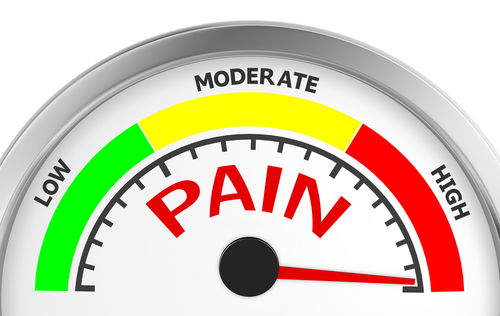The Small Things I Do to Manage the Pain of Iliopsoas Bleeds
Written by |

I’m confined to my bed, suffering from a bleed once more. Many hemophiliacs dread having a bleed in this area, called the iliopsoas muscles. It’s considered a very serious bleed, as it can result in permanent femoral nerve damage and, in some cases, amputation of the leg. The injury is excruciatingly painful and leaves me on bed rest for several days, or even weeks.
My worst encounter with this bleed occurred when I was only 12 years old. I had been on bed rest for over a month and had started losing sensation in my right leg. This was back when we had to rely on blood-based medication for treatment, so healing was slow and painful.
Many others with hemophilia dread this injury. It may not always be talked about in developed countries, but it is dealt with very seriously here in the Philippines. Due to the absence of hemophilia treatment centers and prophylaxis, hemophiliacs are more prone to major injuries such as iliopsoas bleeds. Fortunately, humanitarian help saves many from the severe damage they can do.
This bleed has left me practically immobile and unproductive. I can’t play with my daughter, Cittie, since she’s at the point where she enjoys jumping on Daddy. But Daddy doesn’t like that because he’ll be screaming if she moves the injury. And my wife, Cza, can’t always be around, since she’s handling the things that I usually must deal with, as well as her own responsibilities. It makes me sad because I love to stay productive. My laptop, phone, Kindle, and TV have become my best friends.
These are trying times indeed. One of the things I struggle with most is the intense pain that makes me scream. Ironically, it’s when I try to find a position that’s less painful that I sometimes shriek in agony. I genuinely believe that pain management is an integral skill that those with hemophilia need to learn. It will help keep us afloat when mental pressures and dark thoughts begin to bog us down.
There are many pieces of advice online about pain management, but not all of it is good. Several resources suggest massage and stretching to manage pain. These are no-nos for people with hemophilia, since these practices can slow down healing and may even aggravate injuries. Pain medication also is often suggested, but hemophiliacs can’t take many over-the-counter pain relievers, such as aspirin. Before using any painkillers, it is of the utmost importance that you consult a doctor.
I have, however, found many other techniques for pain management that have helped me through this bleeding episode. Some of these are to keep myself hydrated and eat adequately. Deep, slow breathing has also helped me when the pain is intense. It’s good to slow down and focus on the air entering and exiting my body instead of focusing on the pain. What helps me the most, however, is simply having a distraction that can make me happy and lower my stress.
The worst possible thing I can do is focus on the pain and cry about it. The pain is there to help me determine whether the injury is getting better or worse, so in a way, it’s good. I just have to respect the situation and move on to do things that can help me ease my stress, like listening to music or watching TV. When all else fails and the pain is simply too much, I turn to my pain medication for help.
I am in no way a specialist in pain management, but I hope that what I share can be of help to others. As a person with a chronic illness, pain will surround me every day. I need to embrace that pain so I can live more harmoniously with hemophilia.
***
Note: Hemophilia News Today is strictly a news and information website about the disease. It does not provide medical advice, diagnosis, or treatment. This content is not intended to be a substitute for professional medical advice, diagnosis, or treatment. Always seek the advice of your physician or another qualified health provider with any questions you may have regarding a medical condition. Never disregard professional medical advice or delay in seeking it because of something you have read on this website. The opinions expressed in this column are not those of Hemophilia News Today or its parent company, Bionews Services, and are intended to spark discussion about issues pertaining to hemophilia.



Leave a comment
Fill in the required fields to post. Your email address will not be published.